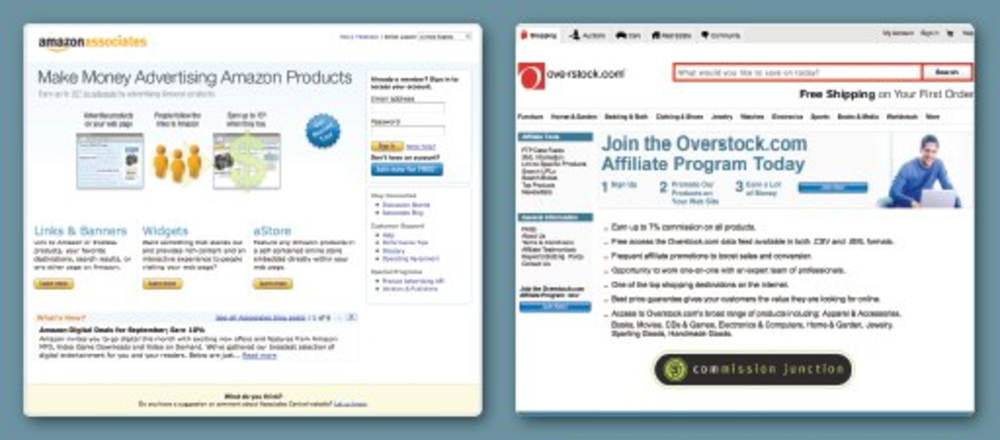The Performance Marketing Alliance (PMA) is the latest organization to oppose state tax collection policy based on affiliate marketer location. The trade group announced support on September 2 for a pending New York Supreme Court lawsuit filed by Amazon.com and Overstock.com in July. They are challenging the state’s requirement for online retailers to pay taxes if they have marketing affiliates in New York.
The retailers have voiced opposition to the measure since New York State passed a law affecting third-party sites that run retail offers in May 2008. The case was first heard in a New York trial court, where the law was upheld.
“We really think the trial court got it wrong,” says Jonathan Johnson, president of Overstock. “We feel the law is unconstitutional.”
Rebecca Madigan, founder of the PMA, echoed Johnson’s sentiments, saying that the law was based on a common misunderstanding.
“Affiliate marketing is not sales; it’s advertising – therefore it’s unconstitutional to collect taxes on the industry,” she says. Opponents of the law contend that it is unconstitutional because affiliates would be taxed on the cost of goods sold by another party.
So called “copy-cat tax laws” were enacted in Rhode Island and recently approved in North Carolina. Other states considering similar laws include Hawaii, California and Maine. The laws in New York and Rhode Island are already in effect, while North Carolina’s will begin on October 1.
The ability to collect sales tax is largely dependent on whether a company has “nexus” — defined as a physical presence that “furthers the cause of the business” — in the state. An affiliate is defined as any party that makes a commission or referral fee on a sale.
Carla Yrjanon, VP of tax research at transaction tax management provider Sabrix, characterized the change in states’ regulations as a “broadening of pre-existing tax law.”
“The economy that we are in, states were collecting less dollars and needed a way to supplement that income,” she says. “All along, states have been concerned about Internet commerce. There has always been the sense that there is a tax loss on Internet sales that has not been accounted for.”
The amount of money at stake nationwide is $3 billion in taxes, based on a 2008 online sales estimate of $204 billion by Forrester Research. The actual take by New York and Rhode Island so far is unclear, as many retailers have cut their affiliate marketing programs in participating states.
Madigan notes that 200 merchants have ended their affiliate programs in New York, endangering the business of 15,000 affiliates in the state.
Overstock has cut ties with all New York-based affiliates since the law first passed.Doing so, however, “has had hardly any effect on our business,” Johnson says.
He added that if the company had to turn off all its affiliates, it would only see a small impact: Johnson estimated that 3% to 5% of Overstock’s business is brought in by affiliates. Johnson’s interest in pursuing the legal battle was not monetary, he says, but based on principle.
“We think the affiliate business should stay in the US,” Johnson says. “It’s an unbounded system – if one affiliate doesn’t carry the coupons they want, buyers will find another affiliate that does. If this law goes nationwide, the affiliate programs might move entirely off-shore.”
Another nationwide option that has been discussed since 2000 is the streamlined sales tax project (SSTP). If passed, it would require business to pay tax on goods shipped to each state at the recipient state’s rate, requiring national retailers to do individual calculations based on the buyer’s location. There are several states that support this plan, but there are no formal regulations mandating participation yet.





